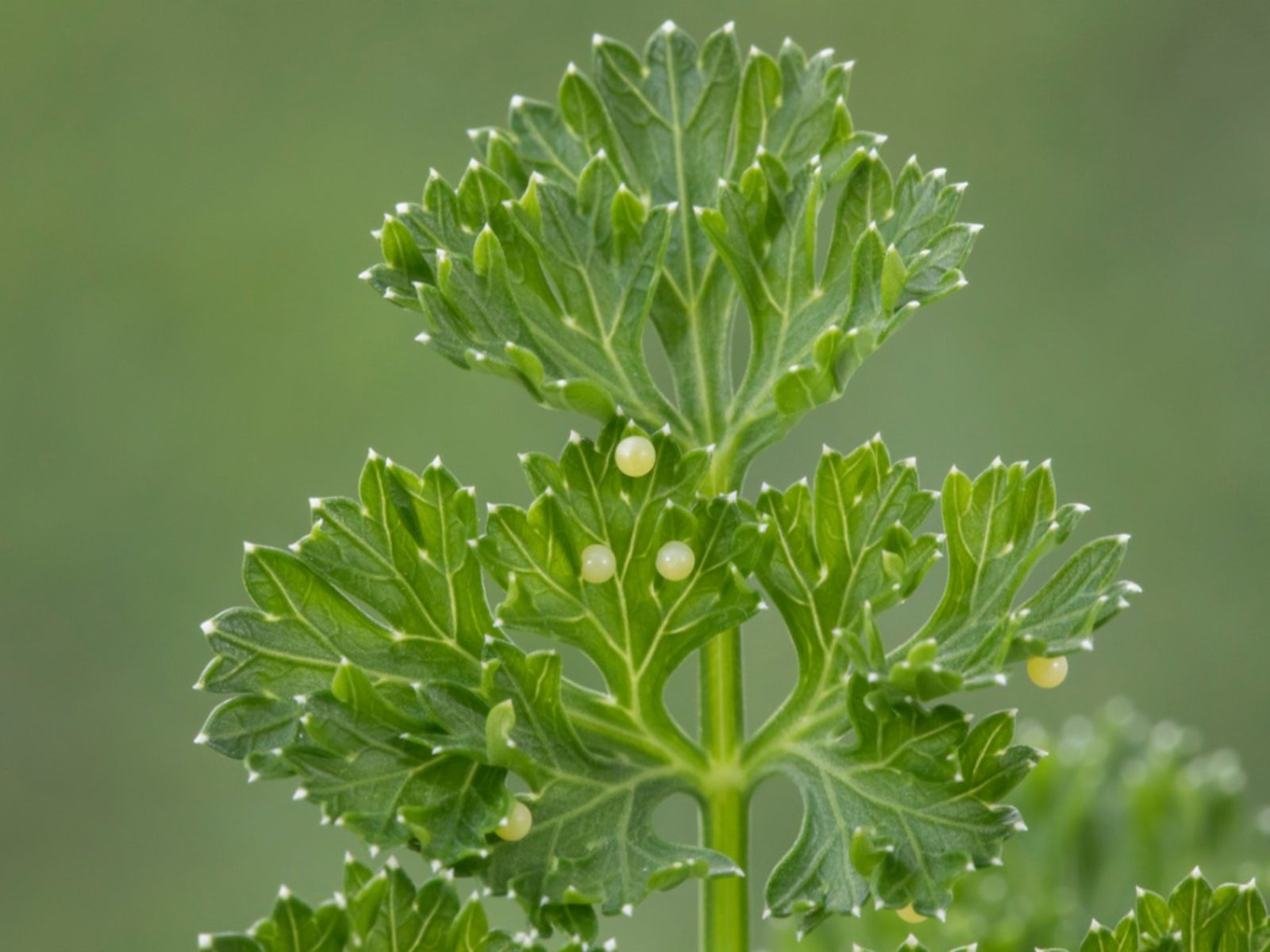
Herb growing problems tend to be relatively few as long as you pay attention to a few golden rules. Most herbs are sun-loving and require at least six hours each day. Herbs also like well-drained soil with a pH of 6 to 7 and amended with some good organic compost. Regular pruning and by virtue of that, removal of any weak or infested growth are the final components to protecting herbs from pests and diseases. That said, there are some common pests and diseases of herbs that may afflict the herb garden.
Protecting Herbs from Pests
The essential fragrant oils of most herbs are a natural repellent to many insects. Despite this, sometimes pests like slugs encroach the herb garden and ravage your plants. The good news is that most of these pests are really just that; they do not usually cause severe damage and are mostly a nuisance. Aphids - Aphids love the tender new leaves of herbs and, in large numbers, may cause curling of the foliage. The resulting honeydew secretion may promote sooty mold as well as attract ants. Aphids are most commonly found among crowded and rapidly growing herbs. Horticultural soaps and neem oil may aid in exterminating these pests. Spider mites - Spider mites prefer hot, dry conditions and are often spotted on the underside of the herb leaves. Protecting the herb garden from these pests is as simple as a strong stream of water aimed at the foliage and regular irrigation. Whiteflies - Whiteflies will also appear on the underside of the leaves. Leafhoppers - Leafhoppers rarely do much damage but do feed on basil, oregano, and parsley. Leaf miners - Leaf miners will also attack succulent basil, leaving tunneling trails between the upper and lower leaf surfaces. Parsley worms - Black swallowtail caterpillars morph into spectacular butterflies. Hence, many gardeners refrain from eliminating them and simply plant plenty of the parsley, dill, and fennel these guys love to munch on. Flea beetles - Yet another pest, the flea beetle is again just that, chewing pinprick holes in the leaves of herbs but sustaining no serious damage. Weevils - Weevils, such as the carrot weevil, will feed on parsley roots but inflict no lasting damage. Spittle bugs - And finally, spittle bugs while leaving a rather unsightly spit-like froth on foliage, can easily be washed off with water and cause little damage.
Diseases of Herbs
Very few herbs (mints and lemongrass) thrive in wet soil. Waterlogged soils encourage fungal diseases such as fusarium root rot. Symptoms appear as brown streaks on the herb stems with an end result often of the general collapse of the plant. Rust plagues many members of the mint family and presents itself as rusty orange lesions on the underside of the leaves. Defenses against diseases of herbs are proper growing conditions, sanitation, removal of weak or otherwise infested foliage, and regular pruning. Raised beds will foster good drainage and watering in the morning to give the herb plenty of time to dry out will also retard the spread of fungal spores which could result in disease.
Troubleshooting the Herb Garden
The best defense, as they say, is a good offense, so when troubleshooting the herb garden, remember to follow the golden rules as outlined below:
- Choose healthy herbs to plant. Plant the healthy herb in the correct environment, either moist and humid or sunny and dry. Do your research and find out the best spot for each type of herb.
- Do not overcrowd your herb plants. Allow for growth, spread, and general aeration between plants.
- Practice proper irrigation and fertilization. Irrigate and fertilize (preferably with an organic food like compost tea) on a schedule and allow to dry between watering. Also, weed between plants to discourage pests and encourage healthy foliage and root systems.
- Prune, prune, prune. Prune your herb, or in other words, harvest the herb plant frequently. This will not only automatically prod you to remove any sick foliage and observe any marauding insects for removal, but promote a lusher, bushier specimen. Harvesting will also remove blossoms, which will keep the plant producing since flowering is a signal to the plant that it's about time to die back for the season.
Follow these rules and you will be less likely to resort to chemical controls for your herb garden which in turn would mean you are ingesting chemicals.
Sign up for the Gardening Know How newsletter today and receive a free copy of our e-book "How to Grow Delicious Tomatoes".

Amy Grant has been gardening for 30 years and writing for 15. A professional chef and caterer, Amy's area of expertise is culinary gardening.
